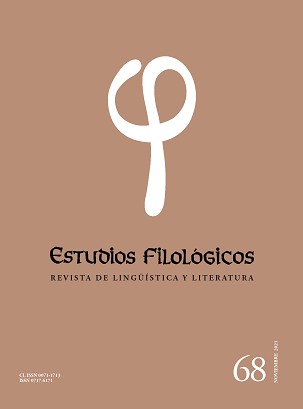“Clarice Lispector”, by Benjamin Moser: Celebration and Misogyny in the biographical discourse
Main Article Content
Abstract
In line with the theoretical proposals by José-Luis Diaz (2007), Dominique Maingueneau (2004) and Eleonora Cróquer (2012), this article addresses the construction of the author Clarice Lispector as a cultural object. The article focuses on the recurring aspects about the author that Benjamin Moser reproduces and amplifies in the biography Why this World (2009), such as the representation of Lispector as a “housewife who wrote novels and short stories” and, at the same time, as an eccentric or extravagant writer; or the identification of the “strangeness” quality that characterizes her literary work and her authorial performance regarding her biographical origins, the cultural and religious tradition of Judaism and the lack of understanding she was subjected to by the Brazilian cultural field. Some of these topics do indeed coincide with the stereotypes associated with the artist in a “regime of singularity” (Heinich 1991 and 2005). However, Moser’s discourse turns them into disavowing motifs that portray Lispector as a “common woman” and as a victim rather than as an exceptional writer. In this way, Why this World enacts several of the critical mechanisms for suppressing women’s writing described by Joanna Russ (1983). Thus, it becomes a perfect example of critical misogyny in an apparently celebrative biographical discourse.

